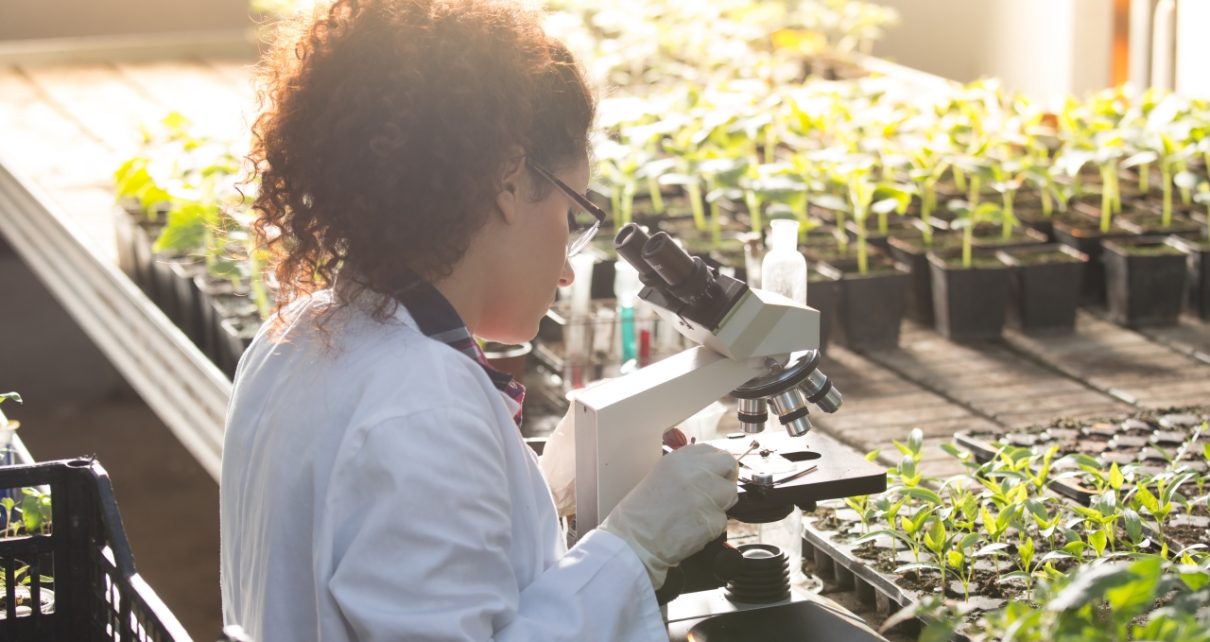
Young biologist looking at microscope with seedlings around her in greenhouse. Microbiology, biotechnology and bioengineering concept
The Truth About Pesticides: Science Over Slogans, Safety Over Sentiment
A rodent explosion threatens crops and the workers who harvest them
By Renee Pinel, June 12, 2025 6:30 am
Pests don’t read signs, don’t care about your slogans, and don’t stop spreading disease just because someone feels uncomfortable about pest control. They attack. And when they do, the consequences are real, especially for our farmworkers, food supply, and public health.
Across California’s agricultural heartland, a rodent explosion threatens crops and the workers who harvest them. Urine, droppings, and the diseases they carry, like leptospirosis and hantavirus, are putting lives at risk. Just recently, a wave of cases linked to hantavirus has made headlines, including a tragic fatality involving Gene Hackman’s wife. These are not hypotheticals. These are preventable tragedies.
This is why we have pest control tools.
Mosquitoes are the deadliest animals on Earth, killing over 700,000 people each year through diseases like malaria, dengue, Zika, and West Nile virus.
If you’ve ever wondered why local and state governments spend millions warning people about them, it’s because the risk is real and urgent.
Mosquitoes, rats, roaches, and termites are not just nuisances; they are vectors of death, destruction, and disease.
Pest control tools are not random sprays. They are among the most studied, reviewed, and regulated products on the market. Before any pest management tool reaches the public, it undergoes rigorous evaluations, not just by the U.S. Environmental Protection Agency, but also by California’s own Department of Pesticide Regulation. Development of a pesticide product takes more than a decade and costs hundreds of millions of dollars, and that’s before it even reaches the evaluation stage, all to ensure that every product is safe when used as directed.
The danger isn’t in using these tools, it’s in not using them.
If pesticide tools were banned tomorrow, estimates show that we could lose 40 to 90 percent of our fruits and vegetables that are still in the ground. Soil-borne diseases would rip through crops. Invasive pests would obliterate native plants, destroy biodiversity, and upend ecosystems. Our food security would collapse, prices would soar, and disadvantaged communities would suffer the most.
California’s farms also face ongoing threats from diseases like grapevine leafroll virus and infestations by foreign pests, such as the Tau fruit fly and the Mediterranean fruit fly, which result in billions of dollars in lost crops.
This is not an argument for unmanaged use. It’s a plea for informed, science-based decision-making. Responsible pest control is about precision, protection, and prevention. It’s about ensuring the safety of farmworkers and communities, maintaining food availability, and promoting environmental sustainability.
We don’t treat cancer with slogans. We use science. Pest control should be no different.
Because when the pests come, and they always do, it’s science that protects us.
- The Truth About Pesticides: Science Over Slogans, Safety Over Sentiment - June 12, 2025
- Trust Science: Veto Bill to Prohibit the Use of Neonicotinoid Pesticides - September 12, 2022





“During aerial spraying in the Bay Area in 1981, B. T. Collins, Gov. Edmund G. Brown Jr.’s director of the California Conservation Corps, drank a glassful of diluted malathion to demonstrate that it is harmless.”~LAT~
All the regulatory agencies are staffed with former employees of the companies they are regulating. If there were real science instead of the fake studies and corruption that we have now I might believe this article. The fact is the chemical companies we have operating now are direct descendants of Nazi programs. The same goes for the highly processed food industry and the pharmacy companies.
As we have recently learned there is an effort to deliberately introduce plant pathogens into this country. How many problems we have today are the result of biowarfare?
One last thought. If these chemicals are so safe why are many of them banned in Europe? I think they also have science.